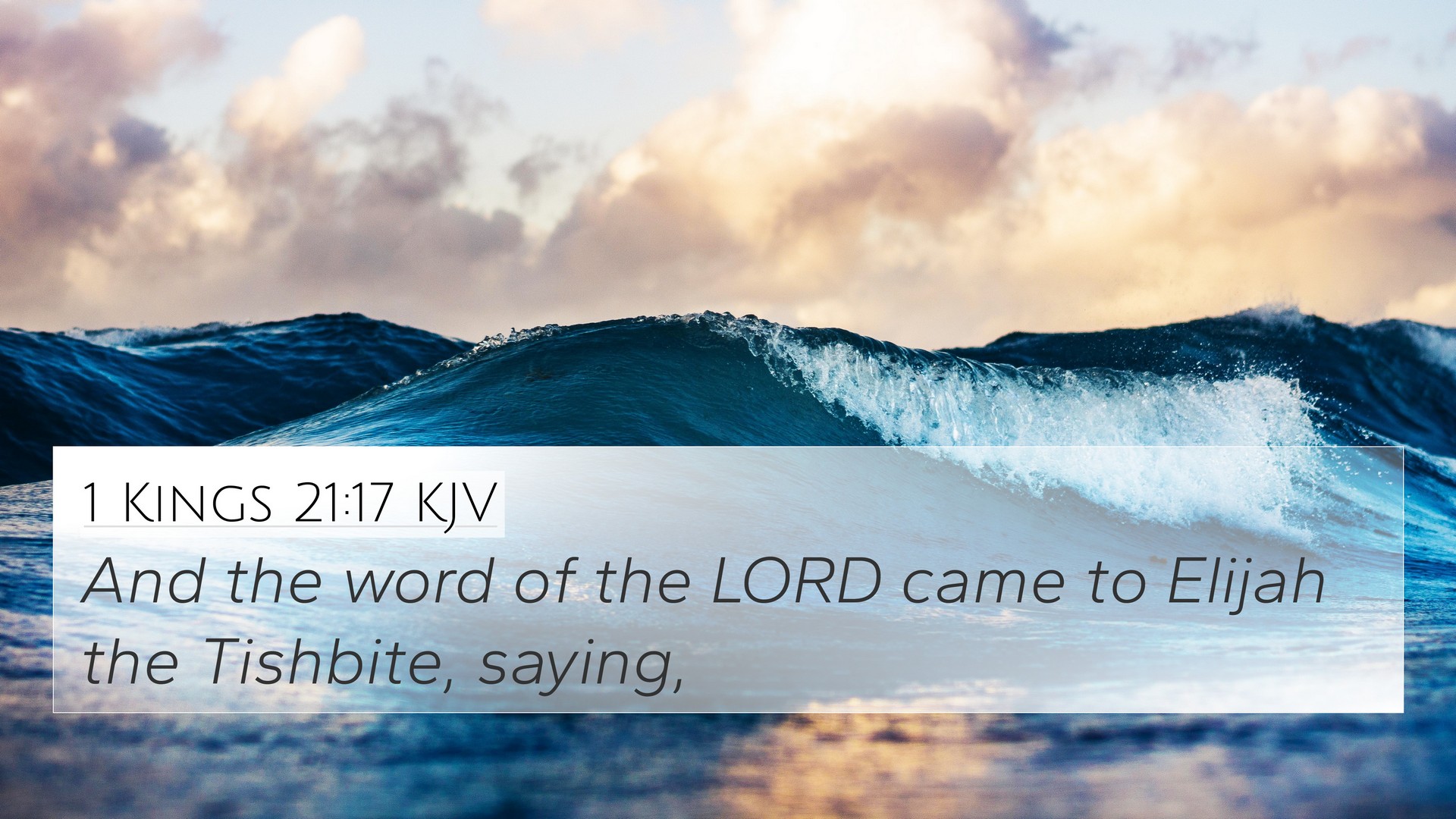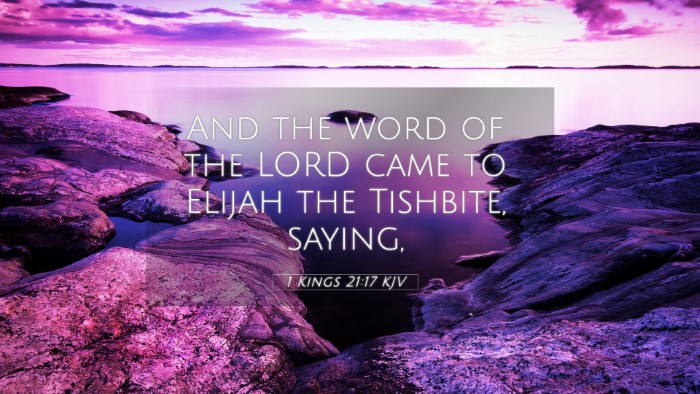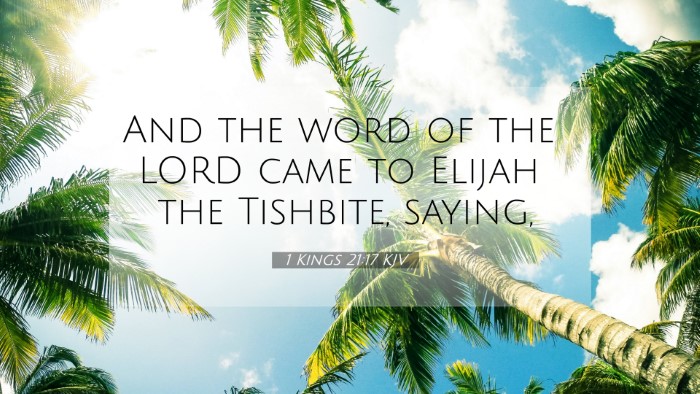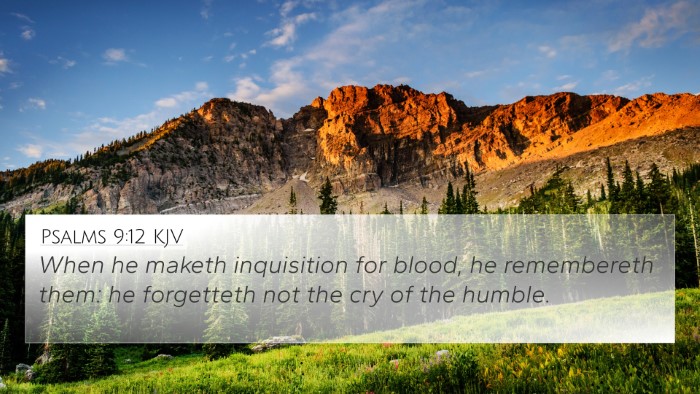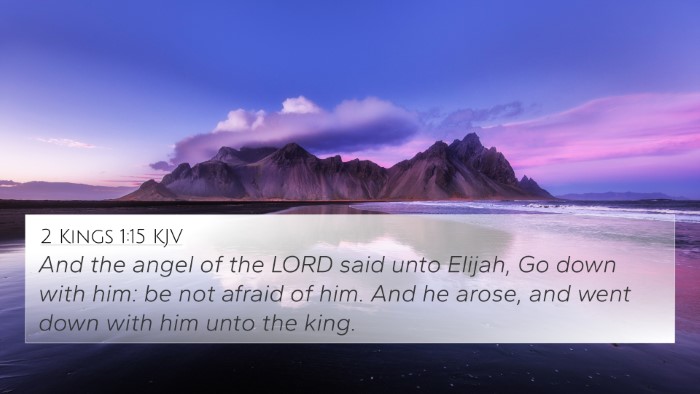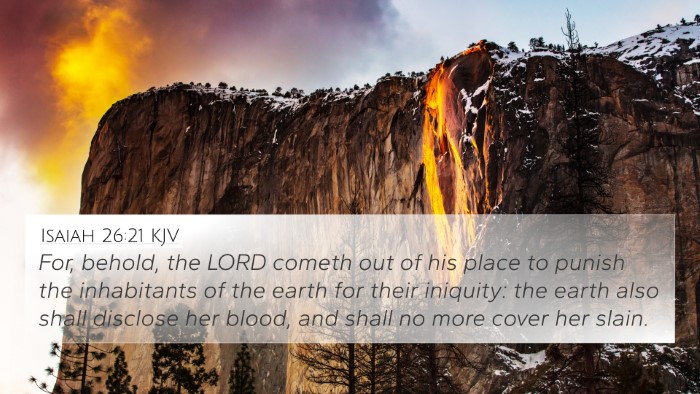Understanding 1 Kings 21:17
1 Kings 21:17 states: "Then the word of the Lord came to Elijah the Tishbite, saying," which sets the stage for divine intervention in a critical situation regarding King Ahab and Naboth's vineyard. This verse highlights the roles of prophecy, obedience, and the moral dilemmas in leadership.
Summary of Insights
This verse denotes a pivotal moment where God communicates directly with Elijah, showcasing the importance of prophetic guidance in times of moral crisis. It encapsulates several themes relevant to understanding biblical narratives, including justice, righteousness, and divine retribution.
Commentary Highlights
Matthew Henry's Commentary
Henry points out that the Lord's word to Elijah signifies God’s active involvement in human affairs. This illustrates God's unyielding justice and the consequences of sin, particularly in the leadership of His people. The prophet Elijah embodies the voice of God against the wrongdoing of King Ahab.
Albert Barnes' Commentary
Barnes highlights the significance of God's direct communication with Elijah, emphasizing prophetic authority. He notes that this serves as a warning to Ahab about his impending judgment due to Naboth's unjust execution. Barnes draws parallels to how prophets act as the moral compass of their communities.
Adam Clarke's Commentary
Clarke elaborates on the socio-political context in which this message was delivered. He discusses how Elijah's prophetic mission involves confronting wickedness and restoring righteousness in Israel. Clarke underscores that God's word often comes to those who are in positions to act justly.
Thematic Connections
- Divine Justice: This verse emphasizes God’s commitment to justice, particularly reflecting on the themes of social morality and righteous leadership.
- Prophetic Authority: Elijah represents God's voice, serving as a reminder that prophets often confront kings and societal ills.
- Obedience to God: The calling of Elijah illustrates the importance of obedience to God’s directives, especially in challenging situations.
Cross References
1 Kings 21:17 connects with several other biblical texts that reinforce its themes:
- 2 Samuel 12:1-15 - Nathan's confrontation with David over Bathsheba, paralleling prophetic judgment.
- Micah 3:5-8 - Prophets who mislead and those who speak God’s truth.
- James 5:17 - The righteous fervor of Elijah as a prophet.
- 1 Kings 18:36-39 - Elijah’s demonstration of God's power before the people of Israel.
- Proverbs 29:12 - The impact of corrupt leadership on society.
- Amo 3:7 - God's revelation to His prophets, signifying their role in relaying divine messages.
- Galatians 6:7 - The principle of sowing and reaping aligned with justice.
Inter-Biblical Dialogue
Analyzing the connections between 1 Kings 21:17 and other biblical narratives allows for a deeper understanding of recurring themes:
- The pursuit of justice against tyranny and corruption.
- The moral obligations of those in power.
- The divine consequences of human disobedience.
Tools for Further Study
For those interested in exploring these themes further, several tools can aid your study:
- Bible concordance for quick cross-referencing.
- Bible cross-reference guide for thematic studies.
- Resources on inter-Biblical connections to enhance understanding of biblical narratives.
Conclusion
In conclusion, 1 Kings 21:17 is a significant verse that delves into the dynamics of leadership, morality, and divine justice. By examining this verse through various commentaries, we uncover the rich theological implications and how it relates to broader biblical principles. The connections made through cross-referencing serve to deepen our understanding of scripture and its lasting message.
